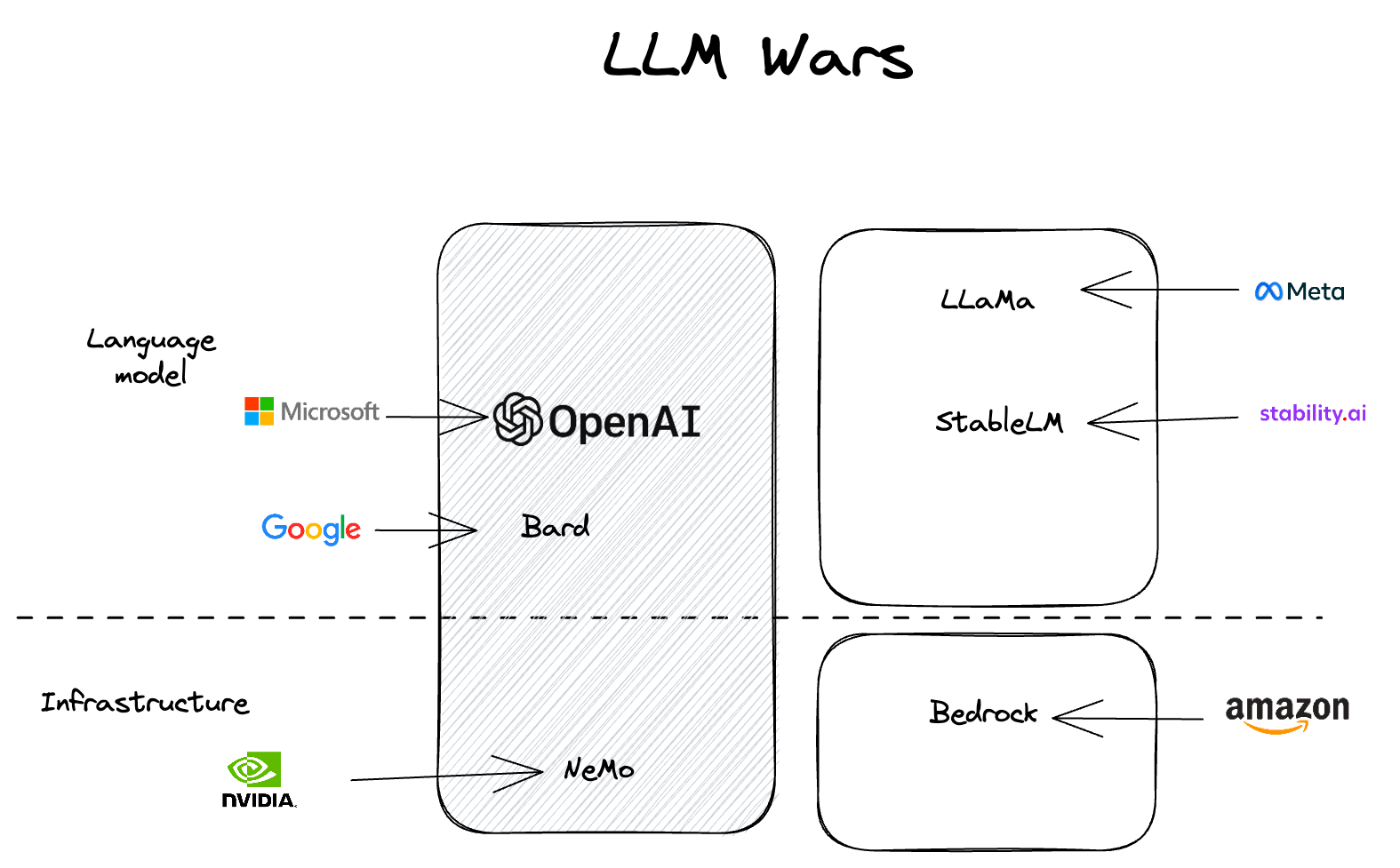LLM Wars

Before we dive into the exciting world of the LLM Wars, let me offer you an alternative: if you prefer to listen to my not-professionally recorded voice memo instead of reading, feel free to do so!
The world of LLMs is currently dominated by some of the biggest names in technology, such as Microsoft, Google, Amazon. These companies are all competing fiercely to come out on top in what has come to be known as the LLM Wars.
Microsoft is currently the front-runner in this race, having invested heavily in their OpenAI platform for several years. The company has made a series of well-planned product releases that have helped them establish a strong foothold in the market. With their focus on innovation and development, Microsoft has set themselves apart as leaders in this space.
Google, on the other hand, has a reputation for being pioneers in the world of AI. They wrote the first transformer papers and led the way with projects like Google Brain and DeepMind. However, despite their strong reputation, the public perception of Google’s LLM offerings has not been great. This is due in part to the company’s slower response in launching their own LLM models. Recently, Google has launched BARD and HealthGPT, but they are still playing catch-up.
Amazon, on the other hand, is playing it safe, with the recent launch of Bedrock enabling users to deploy their open-source models. They are also developing their own LLM model, which they hope will give them an edge in the market. With AWS, one of the largest infrastructures in the world, Amazon has an advantage in the market. By creating alliances with other open-source solutions, such as Stable.diffusion/StableLLM or Meta’s LLaMa, they hope to attract more users to their platform.
NVIDIA is another key player in the LLM Wars. They own the largest infrastructure for GPUs, which are crucial for LLMs. With their recent launch of three models, they hope to attract more users to their platform. However, it’s unclear what their play is in the larger ecosystem. They have tried to create a gaming platform in the past, but it remains to be seen whether they can successfully launch a B2C product in the LLM space.
Apple, with their end devices and Siri personal assistant, has a significant advantage in the LLM Wars. Siri is already on millions of devices in their ecosystem, which gives them a strong foundation to build on. However, the company has yet to deliver on the promise of a smarter, more intuitive Siri that can make LLMs a part of everyone’s daily life. If they can make the right moves in the coming months, they could easily become a major player in the LLM space.
Overall, the LLM Wars are shaping up to be an exciting and unpredictable battle among some of the biggest names in technology. Each company is taking a different approach to their LLM offerings, with some focusing on innovation and development, while others are playing it safe. It remains to be seen which approach will prove to be the most successful in the long run.